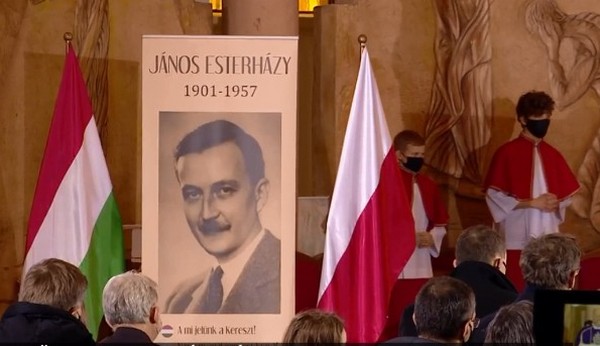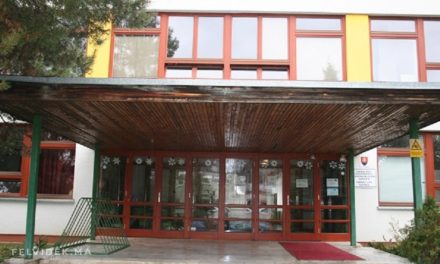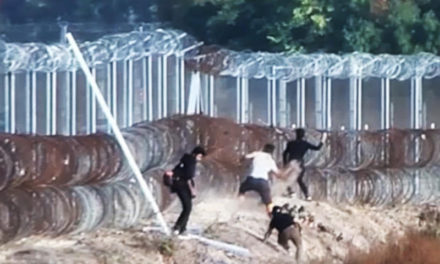János Esterházy, the Hungarian politician born 120 years ago who was martyred, was remembered yesterday in the Visegrád countries. At the mass presented in the Polish capital, the auxiliary bishop of Warsaw said: Today, Poland and Hungary stand up again in defense of the dignity of human life, the value of the male-female relationship, and the family, which forms the basis of the social order, reports hirado.hu.
A Hungarian flag was also hoisted next to the Polish one at the Happy Vladiszlav Gjelnova church in Warsaw, where the martyr of Central Europe, János Esterházy, was commemorated at the episcopal mass on the 120th anniversary of his birth.
The ceremony was also attended by the Hungarian ambassador in Warsaw and the state secretary of the Polish head of state. In his homily, assistant bishop Michal Janocha emphasized: as a politician, János Esterházy always strove to awaken love and respect among the peoples of Central Europe who were in a shared destiny.
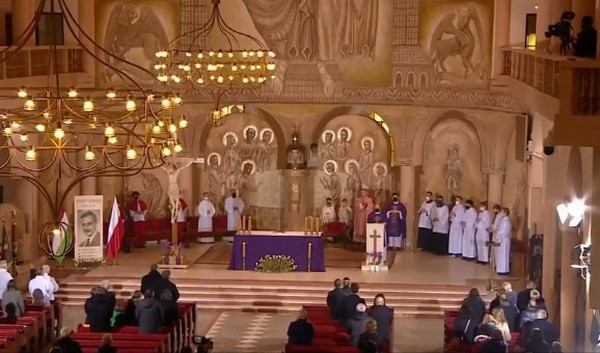
The happy Vladiszlav Gjelnova church in Warsaw, where the martyr of Central Europe, János Esterházy, was commemorated in an episcopal mass on the 120th anniversary of his birth.
"Poland and Hungary stand up again today in defense of the dignity of human life, the value of the male-female relationship, and the family, which forms the basis of the social order, they protect the rights of the nation and the large family of the nations of Europe," said the auxiliary bishop.
After the service, the state and church leaders present laid a wreath at the monument of the politician from the Highlands.
"He knew no compromises against totalitarian systems. He proved this during the German occupation and maintained this attitude during the communist regime. That's why they persecuted him," said Jaroslaw Szarek, president of the Polish Institute of National Remembrance.
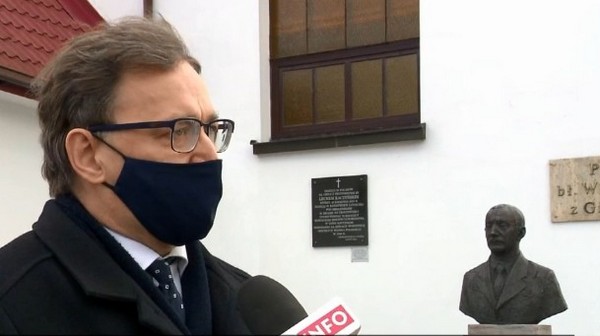
Jaroslaw Szarek, president of the Polish Institute of National Remembrance
At the online commemoration of the Rákóczi Association in Budapest, Zsolt Németh, the chairman of the Foreign Affairs Committee of the Parliament, said: Even as a politician, János Esterházy always kept Christian values in mind, which for him embodied basic human rights in today's sense. As a Hungarian politician, he regarded the Poles, Czechs and Slovaks as his friends, thereby planting the Visegrad idea.
"So now, on the one hundred and twentieth anniversary of his birth, let us remember János Esterházy as a serious friend of the Poles, as a person committed to the Visegrád idea. It is not just interests, but also values that connect us, Visegrad nations, and let's remember him as an outstanding fighter for human rights," stated Zsolt Németh.
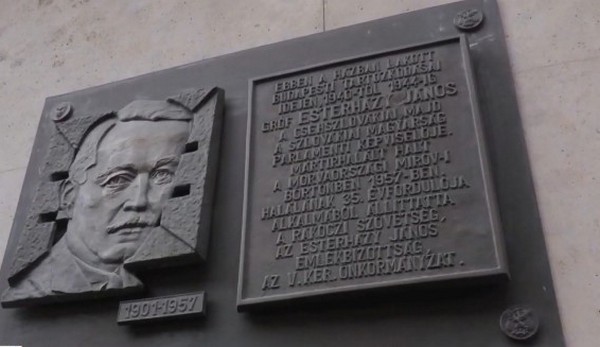
The monument of János Esterházy
Historian Imre Molnár spoke on the M1 about:
János Esterházy preached the Gospel as a politician serving his people. As he said, he dedicated his whole life to the persecuted. He stood by his principles throughout his life.
"He sees that after Nazism, another dictatorship is coming, the communist dictatorship, against which he alone, neither as a politician nor as the leader of that community, can do anything. And then he almost casts himself down, surrenders himself to God, Lord, do with me what you will," explained the historian.
János Esterházy was persecuted by both the Nazis and the Communists. He was imprisoned in four different countries and visited the Gulag. He was sentenced to death in 1947, which was later changed to life imprisonment. He died in a prison in Czechoslovakia in 1957. His beatification process began two years ago in the Archdiocese of Krakow.
The full article hirado-hu .

